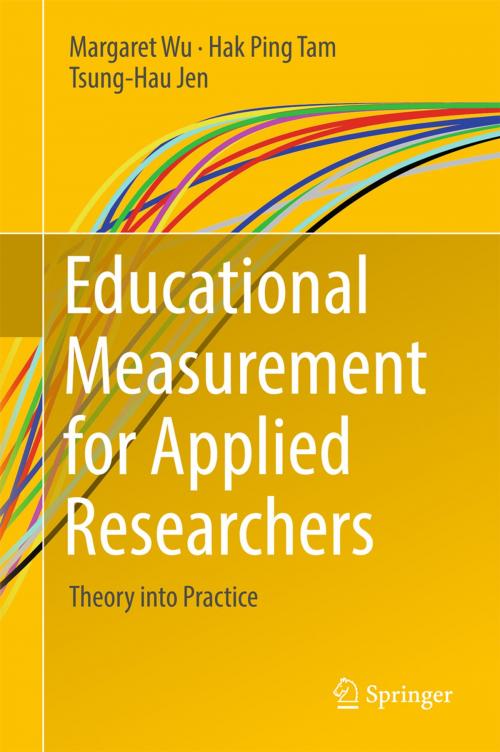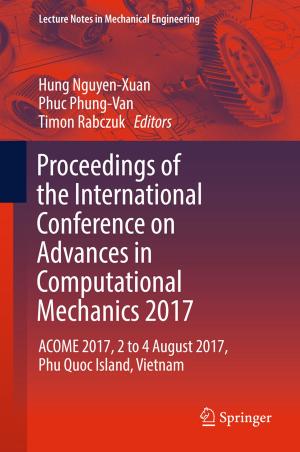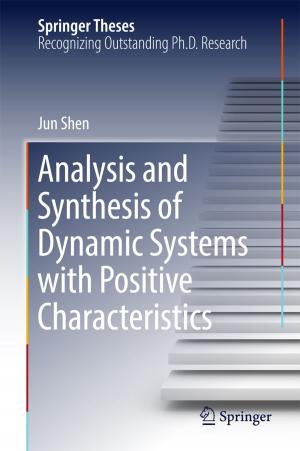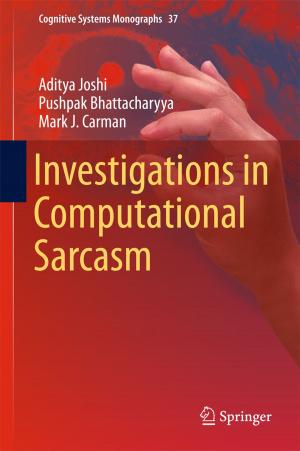Educational Measurement for Applied Researchers
Theory into Practice
Nonfiction, Social & Cultural Studies, Social Science, Statistics, Science & Nature, Mathematics| Author: | Margaret Wu, Hak Ping Tam, Tsung-Hau Jen | ISBN: | 9789811033025 |
| Publisher: | Springer Singapore | Publication: | January 2, 2017 |
| Imprint: | Springer | Language: | English |
| Author: | Margaret Wu, Hak Ping Tam, Tsung-Hau Jen |
| ISBN: | 9789811033025 |
| Publisher: | Springer Singapore |
| Publication: | January 2, 2017 |
| Imprint: | Springer |
| Language: | English |
This book is a valuable read for a diverse group of researchers and practitioners who analyze assessment data and construct test instruments. It focuses on the use of classical test theory (CTT) and item response theory (IRT), which are often required in the fields of psychology (e.g. for measuring psychological traits), health (e.g. for measuring the severity of disorders), and education (e.g. for measuring student performance), and makes these analytical tools accessible to a broader audience.
Having taught assessment subjects to students from diverse backgrounds for a number of years, the three authors have a wealth of experience in presenting educational measurement topics, in-depth concepts and applications in an accessible format. As such, the book addresses the needs of readers who use CTT and IRT in their work but do not necessarily have an extensive mathematical background. The book also sheds light on common misconceptions in applying measurement models, and presents an integrated approach to different measurement methods, such as contrasting CTT with IRT and multidimensional IRT models with unidimensional IRT models. Wherever possible, comparisons between models are explicitly made. In addition, the book discusses concepts for test equating and differential item functioning, as well as Bayesian IRT models and plausible values using simple examples.
This book can serve as a textbook for introductory courses on educational measurement, as supplementary reading for advanced courses, or as a valuable reference guide for researchers interested in analyzing student assessment data.
This book is a valuable read for a diverse group of researchers and practitioners who analyze assessment data and construct test instruments. It focuses on the use of classical test theory (CTT) and item response theory (IRT), which are often required in the fields of psychology (e.g. for measuring psychological traits), health (e.g. for measuring the severity of disorders), and education (e.g. for measuring student performance), and makes these analytical tools accessible to a broader audience.
Having taught assessment subjects to students from diverse backgrounds for a number of years, the three authors have a wealth of experience in presenting educational measurement topics, in-depth concepts and applications in an accessible format. As such, the book addresses the needs of readers who use CTT and IRT in their work but do not necessarily have an extensive mathematical background. The book also sheds light on common misconceptions in applying measurement models, and presents an integrated approach to different measurement methods, such as contrasting CTT with IRT and multidimensional IRT models with unidimensional IRT models. Wherever possible, comparisons between models are explicitly made. In addition, the book discusses concepts for test equating and differential item functioning, as well as Bayesian IRT models and plausible values using simple examples.
This book can serve as a textbook for introductory courses on educational measurement, as supplementary reading for advanced courses, or as a valuable reference guide for researchers interested in analyzing student assessment data.















